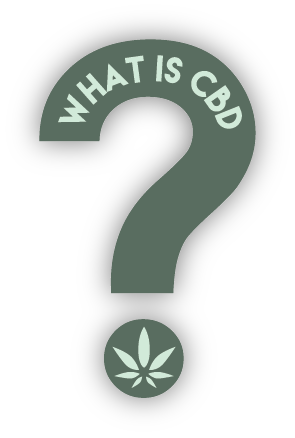CBD, otherwise known as cannabidiol, is a chemical compound derived from the hemp plant. While CBD also comes from the cannabis plant (cannabis sativa) our CBD is purely derived from the hemp plant and is nonpsychoactive. CBD is one of over 100 cannabinoids, the active ingredients in cannabis sativa. Our hemp derived CBD has less than 0.3% of the legal limit of THC.
Humans have been using the hemp plant for over 5000 years, not only medicinally but for its fibers too as twine, fabric, and similar products.
The human body contains what is called the endocannabinoid system (ECS) which regulates many things, including sleep, pain regulation, appetite, immune system response, motivated behavior, and energy homeostasis. CBD receptors are expressed in adipose tissue, pancreas, liver, gastrointestinal tract, skeletal muscles, heart and the reproduction system (1). This shows how far reaching CBD can be to the body.
While research is currently still being conducted on CBD, it may help with the following issues:
Pain Relief
Studies show CBD may help reduce chronic pain by impacting endocannabinoid receptor activity, reducing inflammation and interacting with neurotransmitters. These studies have shown CBD to be effective on multiple sclerosis (2), rheumatoid arthritis, sciatica nerve pain, inflammation (3).
Anxiety/Depression
According to the World Health Organization, depression is the largest contributor to disability worldwide, while anxiety disorders are ranked sixth. CBD has shown promise to be effective in treating depression and anxiety, without the strong side effects commonly reported by pharmaceutical antidepressants and anti-anxiety medications (4).
Insomnia & PTSD
CBD has been shown as an effective treatment for insomnia and post traumatic stress disorder in adolescents. (5)
Cancer Symptom Relief
CBD may help alleviate common symptoms of cancer treatment such as nausea, vomiting, and pain (6) without the side effects caused by pharmaceuticals designed to relieve these symptoms.
Neuroprotective Properties
CBD may help those with neurological disorders such as multiple sclerosis (7) or epilepsy (8) by acting on the endocannabinoid and brain signaling systems.
Heart Health
Studies show CBD may help reduce resting blood pressure as well as reduce the raising of blood pressure as a response to a stressor (9). one study found that treatment with CBD reduced oxidative stress and prevented heart damage in diabetic mice with heart disease. (10)
Antipsychotic
Studies suggest that CBD may help people with schizophrenia and other mental disorders by reducing psychotic symptoms. (11)
Substance Abuse Treatment
Using CBD may help those working through substance abuse by alleviating withdrawal symptoms, by modifying circuits in the brain related to drug addiction (12), and has reduced morphine seeking behavior in rats (13).
Diabetes Prevention
A study on diabetic mice showed that CBD helped reduce incidence of diabetes by 56%.
Inflammation Reduction
This same study also showed a reduction in inflammation in diabetic mice. (14)
There are currently no cases of toxicity or overdose from hemp derived CBD extractions. With that said, always consult your health care provider before incorporating a new medicine into your wellness routine whether it is CBD or another medicine.
Hemp derived CBD with less than 0.3% THC is legal on a federal level in the United States, however it is still illegal in some states. It is legal in Texas, our home base, and we will not distribute or ship to any state where CBD is illegal.





